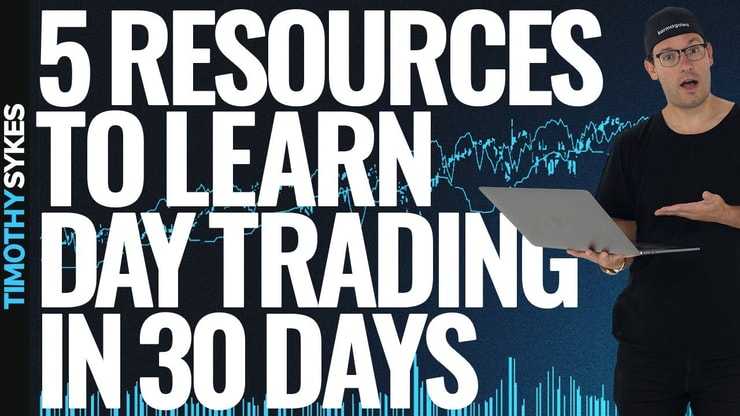Is day trading legal in Canada? The short answer is yes, it’s perfectly legal to day trade in Canada. But the tricky part is in the various rules and regulations that must be adhered to, and tax implications that can change based on your trading activities.
You should read this article if you want to understand the day trading landscape in Canada—from regulations to potential profits!
I’ll answer the following questions:
- Is day trading legal in Canada?
- What is day trading and how does it differ from investing?
- Who is considered a day trader in Canada?
- What are the rules and regulations for day trading in Canada?
- How much money do you need to start day trading in Canada?
- What are the risks and requirements for day trading?
- How are day trading profits taxed in Canada?
- What should you consider when choosing an online broker for day trading in Canada?
Still with me? Good. Now let’s dig into the details.
Table of Contents
- 1 What Is Day Trading?
- 2 Day Trading Rules in Canada
- 3 How To Start Day Trading in Canada
- 4 The Risks and Requirements of Day Trading
- 5 Tax Implications for Day Traders in Canada
- 6 Choosing the Right Platform and Broker for Day Trading
- 7 Key Takeaways
- 8 Frequently Asked Questions
- 8.1 How Does the CRA Define a Day Trader?
- 8.2 Can I Day Trade in an RRSP or TFSA Account?
- 8.3 Is Day Trading Considered Self-Employment in Canada?
- 8.4 What Investments Are Legal for Day Trading in Canada?
- 8.5 How Do Markets Differ Between the United States and Canada?
- 8.6 Are There Any Services to Help With Day Trading in Canada?
- 8.7 What Factors Affect Day Trading Returns?
- 8.8 Can I Use My Savings Account for Day Trading?
- 8.9 What Personal Information Do I Need to Start Day Trading?
- 8.10 What Content Should I Look for in Day Trading Blogs?
- 8.11 What Are the Costs Associated With Day Trading?
- 8.12 Can Parents Day Trade Using Their Children’s Savings Accounts?
- 8.13 Is Borrowell a Reliable Source for Day Trading Loans?
- 8.14 Can I Use My Tax Refund to Fund Day Trading?
- 8.15 How Reliable Is News in Influencing Day Trading Decisions?
- 8.16 Is Homeownership a Factor in Day Trading Success?
What Is Day Trading?

Day trading is the act of buying and selling securities within the same day to profit from price fluctuations. Unlike investing, where you hold assets for an extended period, day trading is about quick action. I’ve made a career out of day trading penny stocks, so trust me when I say that understanding market trends and volume is crucial.
Day trading can involve various assets and exchanges, from stocks and ETFs to forex. The objective is to execute trades that capitalize on short-term price action and trends. The strategy can range from scalping to more complex day trading strategies, like momentum trading.
Day trading isn’t just about charts and numbers; it’s also about community insights. Platforms like Reddit can offer real-time discussions and even trading strategies that you might not find elsewhere. However, while Reddit can be a treasure trove of information, it’s crucial to remember that not all advice you find there should be taken at face value. Always do your own research to validate any tips or strategies you come across. For more insights on how Reddit influences day trading in Canada, check out this Reddit insights article.
Differences Between Day Trading and Investing
Day trading and investing are both ways to profit from the stock market, but their strategies and goals differ. Day trading is about rapid transactions to capitalize on price fluctuations. In contrast, investing is a long-term game, focused on building a diversified portfolio of assets like stocks, ETFs, and bonds.
Investing aims for steady, long-term growth, whereas day trading aims for quick profits. Investors typically diversify their portfolio, taking on a blend of risk and potential reward. For day traders like me, it’s more about reading charts and reacting to market volatility. I teach my students to focus on trends and volume, which are key indicators for successful day trading.
Day Trading Rules in Canada
Day trading rules in Canada mainly refer to the 30-day trading rule, also known as superficial loss rule.
This rule prevents claiming a capital loss if the same or identical shares are repurchased within 30 days before or after a sale. Instead of deducting the loss, it’s added to the adjusted cost base of the repurchased shares, potentially impacting future tax obligations.
The 30-day rule prevents taxpayers from creating artificial capital losses by selling shares and repurchasing them within 30 days. This rule stops traders from immediately claiming a capital loss through quick buybacks of the same shares, ensuring capital losses reflect genuine market changes.
How To Start Day Trading in Canada

You might be wondering, “How can I start day trading in Canada?” First off, know who is considered a day trader in this country. In Canada, a day trader is someone who engages in buying and selling securities on the same day, frequently.
One crucial thing to start day trading is an account with a Canadian online broker. These platforms charge various fees and commissions, which can eat into your profits, so choose wisely. I’ve had years of experience in the market, and I always emphasize the importance of understanding fees and selecting the right platform for your needs.
Don’t overlook the importance of a user-friendly stock trading app. A good app can make or break your trading experience. It should offer real-time data, a variety of trading tools, and perhaps most importantly, be easy to use. The last thing you want is to miss out on a trade because the app was too complicated. For a comprehensive guide on selecting the best stock trading app, take a look at this stock trading app article.
Who Is Considered a Day Trader in Canada?
In Canada, you’re considered a day trader if you regularly engage in buying and selling securities on the same day. While the Canada Revenue Agency doesn’t have a strict definition, frequent transactions are the general guideline.
In other words, if you’re frequently executing trades to capitalize on short-term price action, you’re a day trader. This is not a title or a certification; it’s more about your trading activity level.
More Breaking News
- From Win to More Wins: Discover How Direct Digital Holdings Inc. Is Celebrating Success
- Is Grayscale Bitcoin Trust’s Recent Increase a Buying Signal or a Fade?
- Innoviz Technologies’ Stock on a Roll: What Factors are Driving the Surge?
Day Trading Rules in Canada
Regulations in Canada around day trading mainly focus on margin accounts. You can’t freely short sell or use borrowed money unless you meet the minimum account balance set by your brokerage, often around $25,000 CAD. Keep in mind, rules may vary from Quebec to British Columbia to Ontario.
If you trade on margin and don’t meet the balance, you could be flagged as a pattern day trader. This can restrict your trading activities. Always remember: the stock market has rules, and breaking them has consequences.
How Much Money Do You Need to Start Day Trading in Canada?
So, you’re eager to jump into day trading, but how much capital do you need? In Canada, there’s no legal minimum required to start day trading. However, many brokers set a minimum account balance, generally around $1,000 to $5,000 CAD.
While it’s tempting to start with a small amount, you must consider fees and commissions. They can quickly eat into your profits, making it difficult to succeed. And let’s not even talk about debt; starting with borrowed money is a huge risk.
The Risks and Requirements of Day Trading

Day trading is not without its risks, such as market volatility and potential losses. While trading offers the chance for significant profits, it’s also possible to lose money quickly. I always tell my students to maintain a tight risk strategy.
To succeed in day trading, you need an in-depth understanding of market trends, volume, and price action. Knowledge and data are your best allies. You also need a substantial amount of time for research and analysis. I’ve been in the game long enough to tell you that skimping on research is a surefire way to fail.
Understanding market trends and volume is essential, but so is having a solid day trading strategy. Whether you’re into scalping or momentum trading, your strategy should align with your risk tolerance and trading objectives. A well-thought-out strategy can be the difference between success and failure in the volatile world of day trading. For a deep dive into various day trading strategies, check out this day trading guide.
Tax Implications for Day Traders in Canada
When it comes to day trading, tax implications are an essential part of the game. The Canada Revenue Agency classifies profits from day trading as business income, which means you’ll pay tax at your marginal rate.
Day Trading Tax Rules and Regulations?
In Canada, if you’re classified as a day trader, your profits are considered business income. This type of income is subject to full taxation. The tax rate varies depending on your total income, but expect to pay both federal and provincial taxes.
How Are Day Trading Capital Gains Taxed?
Contrary to investors who can claim capital gains, day traders in Canada don’t get that tax advantage. All profits are considered as 100% taxable business income. It’s a different taxation rule that applies, which makes understanding your tax obligations crucial.
Reporting Your Capital Losses in Canada
It’s not all about the profits; you’ll also incur losses as a day trader. In Canada, you can use these capital losses to offset your business income. This is a tool you can use to reduce your tax liability.
Understanding the Superficial Loss Rule
In Canada, you need to be aware of the superficial loss rule, which disallows the claiming of a capital loss if you repurchase the same asset within 30 days. This rule is designed to prevent “loss trading,” and can affect your tax calculations significantly.
Choosing the Right Platform and Broker for Day Trading
Your platform and broker are key elements in your trading strategy. In Canada, online brokers like Questrade offer various tools and resources to assist in your trading activities. Choose a broker that provides low fees and a robust trading platform. My experience has taught me that your choice of broker can make or break your trading success.
Canadian Online Brokers and Their Fees
Brokers in Canada charge a range of fees, from commissions per trade to account maintenance fees. Some might offer a flat fee for unlimited trades, while others charge per transaction. Always be aware of how these fees impact your bottom line.
Key Takeaways

Day trading is legal in Canada but comes with its set of rules and tax implications. To be successful, you’ll need a solid strategy, a keen eye for market trends, and a robust risk management plan. Remember, day trading is not a way to get rich quick; it requires dedication, research, and a thorough understanding of market volatility.
Trading isn’t rocket science. It’s a skill you build and work on like any other. Trading has changed my life, and I think this way of life should be open to more people…
I’ve built my Trading Challenge to pass on the things I had to learn for myself. It’s the kind of community that I wish I had when I was starting out.
We don’t accept everyone. If you’re up for the challenge — I want to hear from you.
Apply to the Trading Challenge here.
Trading is a battlefield. The more knowledge you have, the better prepared you’ll be.
Are you an aspiring day trader? Let me know in the comments — I love hearing from my readers!
Frequently Asked Questions
Here, we’ll address some common questions beginners have about day trading in Canada.
How Does the CRA Define a Day Trader?
The Canada Revenue Agency (CRA) doesn’t have a strict definition for a day trader. However, if you frequently engage in day trading, your profits will be classified as business income for tax purposes.
Can I Day Trade in an RRSP or TFSA Account?
Yes, you can day trade in an RRSP or TFSA account. However, be cautious. The CRA may classify frequent trading activities in these accounts as business activities, which could lead to tax implications.
Is Day Trading Considered Self-Employment in Canada?
In Canada, if you’re making a significant income from day trading, it could be considered self-employment. However, the CRA has no set guidelines, and each case is considered individually.
What Investments Are Legal for Day Trading in Canada?
Day trading in Canada permits trading in various investments such as shares, options, and currency. Always consult services that offer reliable information to ensure your investments align with Canadian security laws.
How Do Markets Differ Between the United States and Canada?
Both countries have robust markets, but there are key differences such as currency used, companies available for trading, and approval regulations. For instance, in the United States, the dollar is the standard currency for trading, while in Canada, both the U.S. and Canadian dollars are commonly used.
Are There Any Services to Help With Day Trading in Canada?
Yes, several services are available that offer calculators, faqs, and steps for better understanding the day trading process. Always check the content on their site to ensure it’s up-to-date and accurate.
What Factors Affect Day Trading Returns?
Returns on day trading are influenced by various factors including market opportunities, investment decisions, and the economic conditions in different countries. In some cases, results may vary based on trading practice and support tools used.
Can I Use My Savings Account for Day Trading?
While you can technically use funds from your savings accounts for day trading, it’s important to consider interest rates and potential loan options. Your bank may offer better interest rates for other types of investment accounts.
What Personal Information Do I Need to Start Day Trading?
Generally, your name, job, and credit score might be needed for initial setup. If you are a homeowner, some additional documentation might be necessary. Please note that your credit score could also influence loan approval rates for additional trading funds.
What Content Should I Look for in Day Trading Blogs?
Articles and blogs can provide a lot of valuable information. However, look for content that covers everything you need to know about day trading, including examples and results.
What Are the Costs Associated With Day Trading?
Costs can vary a lot depending on the trading platform, transaction fees, and service charges. Always read the terms and conditions to know your rights and the cost implications.
Can Parents Day Trade Using Their Children’s Savings Accounts?
While parents could technically use the funds in their children’s savings accounts, it’s a practice that needs careful consideration due to the risks involved. Make sure to consult financial support services before making such decisions.
Is Borrowell a Reliable Source for Day Trading Loans?
Borrowell is known for providing loans and can be an option for securing additional capital for day trading. However, ensure you understand the interest rates and approval process before proceeding.
Can I Use My Tax Refund to Fund Day Trading?
Yes, you can use your tax refund as cash to fund your day trading purchases. However, it’s important to weigh the risks and potential returns before diving in. You should also consider other financial commitments like mortgages and dividends from other investments.
How Reliable Is News in Influencing Day Trading Decisions?
News can play a critical role in affecting the popularity of specific trading products. Many day traders place orders based on news events. However, the impact of news can be volatile, so it’s crucial to verify the source and timing before making trading decisions.
Is Homeownership a Factor in Day Trading Success?
Homeownership isn’t directly related to day trading success, but being a homeowner might give you additional financial stability or options for leverage, depending on the place where you reside. Just keep in mind that the risks associated with day trading should not jeopardize your primary residence or other key assets.




Leave a reply